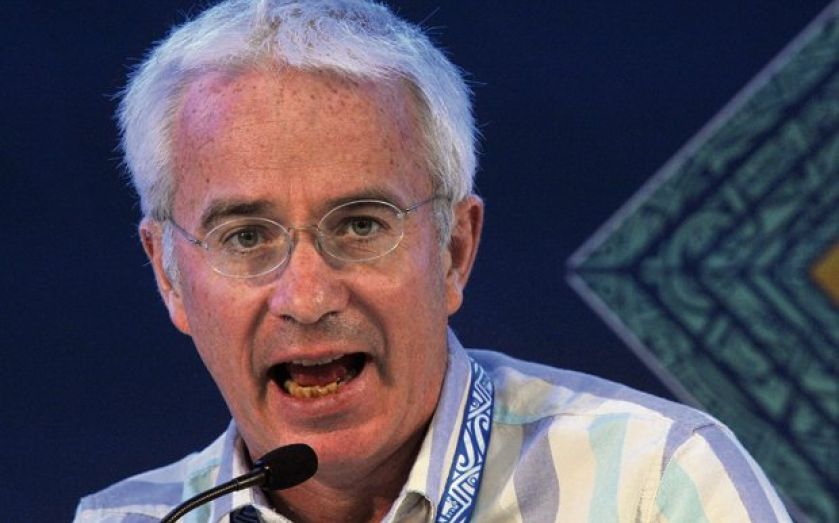Standard Chartered’s Peter Sands: The man who fell to earth

With Standard Chartered under pressure after poor results, the clock is ticking on the reign of chief executive Peter Sands
Peter Sands, long-standing chief executive of Standard Chartered, the City’s not-a-banker banker who became the poster boy of weathering the recession, finds himself in a precarious position.
The bank, which he has successfully steered through one of the worst recessions in memory, has started to stumble. Shares have dropped some 34 per cent in the past 16 months as profits have nose-dived by 20 per cent in the first half of the year – a gaggle of shareholders are baying for his blood. His chairman, Sir John Peace, has insisted he’s not begun the job of creating a suitable succession plan, but is listening carefully to shareholder’s concerns.
Standard Chartered has always prided itself on having a culture apart from its neighbouring City competitors and many would say Sands is no different. People who’ve crossed his path have described an approachable, relaxed-style and he has often spoken of his desire to run the company in a more horizontal manner. “We want people here to feel empowered. This is a flat organisation,” he was quoted as saying in 2010 – keen to show there’s no ivory tower in Standard Chartered.
His office is full of art, the affordable kind collected from the bank’s far-flung global locations rather than from the auction room at Christie’s. It’s a stark reminder of the bank’s firm footing in emerging markets – once its saving grace, now, blamed in part for the bank’s changing fortunes.
Born in 1962 to a naval officer and an artist, some have said his background (not in a bank – shock horror) has helped to set him aside from many of his peers. He walked away with a bachelor of arts degree from Oxford in 1984, followed by a traineeship at the Foreign Office and a masters degree in public administration from Harvard. This in turn led him to 13 years at McKinsey before he joined Stan Chart.
Outside work, Sands is not your run of the mill, banking CEO either. An Arsenal fan, he lives in Highbury with his wife Betsy Tobin – an American novelist. Neighbours with the likes of comedian Clive Anderson and TV chef Nigel Slater, he has in the past let film crews use his terraced home as a set. He’s even known to think nothing of going to music festivals with his kids.
While he clearly has a passion for culture outside as well as inside the bank, it’s his obvious leaning toward political circuits which has caused some criticism to be levelled at him of late. One senior banker recently claimed Sands was always on the “rubber chicken circuit” rather than running a bank. Indeed, the chief exec was away in China with David Cameron just beforethe bank announced its first profit warning in years, an unfortunate turn of events for Sands.
Then there’s Meddings Gate. When the bank fell foul of US sanctions, Sands is said to have put the blame on his former finance director, Richard Meddings, when it was thought that it had been Meddings who warned of the possible violation in the first place. Meddings, of course, was the one to leave in January of this year.
Now it seems the spotlight has been turned on to Sands – captain of the Standard Chartered ship since 2006, but someone who, a number of shareholders feel, needs to move on, sooner rather than later.
Some are saying while he was a chief exec capable of achieving growth, restructuring (or refreshing, as he would call it) is not his bag of chips and he needs to go.
Whichever way it goes, the egg-timer has definitely been flipped on Sands’ time as chief of Standard Chartered. Shareholders will just be waiting to see when that last grain of Sands slips through.